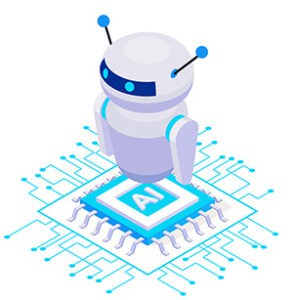Google Search is getting even more advanced. We’ve already seen how much effort they put into providing users with better answers to their search queries. Recently, some of Google’s more technologically advanced efforts are starting to bear fruit. Two of the recent changes are shaking up the world of search.
Google AI is Learning to Solve Tougher Search Queries
 First up is all the talk over Google’s new AI, RankBrain. The AI (artificial intelligence) has been handling millions of Google searches for the past few months. So far, RankBrain’s results have been found more satisfactory than Google’s human search engineers. Scary, It works like this: RankBrain “guesses” what users want by looking at the words and phrases used in the query. It then filters them by similar results. What’s even scarier is that RankBrain getting better all the time.
First up is all the talk over Google’s new AI, RankBrain. The AI (artificial intelligence) has been handling millions of Google searches for the past few months. So far, RankBrain’s results have been found more satisfactory than Google’s human search engineers. Scary, It works like this: RankBrain “guesses” what users want by looking at the words and phrases used in the query. It then filters them by similar results. What’s even scarier is that RankBrain getting better all the time.
We’ve been waiting to hear of a Google Artificial Intelligence Project for search, and RankBrain seems to be it. Although the Google AI is still pretty new, it’s already an essential part of how Google ranks pages. It’d be one thing if RankBrain were an entirely new algorithm. (It isn’t; it’s one of “hundreds” of signals Google uses.) But it is reported as being the “third-most important signal contributing to the result of a search query.” And that’s something that demands your attention. As RankBrain continues to fine-tune its ways, we may be seeing some drastic results on the horizon.
Google’s Mobile Search App Now Answers Complex Questions
Like the Google AI, the Google Search app is being retooled to parse out tougher questions. The app is now equipped to understand the meaning behind complex search queries. It does so by breaking queries into segments. For example, the query “Who was the US President when the Angels won the World Series” is broken down by “US President,” “Angels,” and “World Series.” The Google Search app delivers the answer from the context these terms used.
 Granted, not everyone is going to type their search queries like this. (Although we’re curious how ham-fisted you can phrase a sentence to get results like these.) But the fact that Google can now figure these out is impressive. The app will even understand superlatives and ordered items (best, most, tallest, by area, etc.), as well as questions that reference particular points in time. So go ahead — get as creative as you want with your search. The Google search app is probably ready to handle it.
Granted, not everyone is going to type their search queries like this. (Although we’re curious how ham-fisted you can phrase a sentence to get results like these.) But the fact that Google can now figure these out is impressive. The app will even understand superlatives and ordered items (best, most, tallest, by area, etc.), as well as questions that reference particular points in time. So go ahead — get as creative as you want with your search. The Google search app is probably ready to handle it.
What Do These Changes Mean for SEO?
The SEO world is used to change. Except now we may have to prepare for change a little faster than usual. More powerful search tools are a good thing because they increase the likelihood of a good user experience. However, because RankBrain is continuously refining its methods, we are likely to see periodic dips in website rankings.
Will the changes from the Google AI bot and the mobile search app affect your rankings? Time will tell. The only thing you can do for your site has robust SEO services to back it up.

